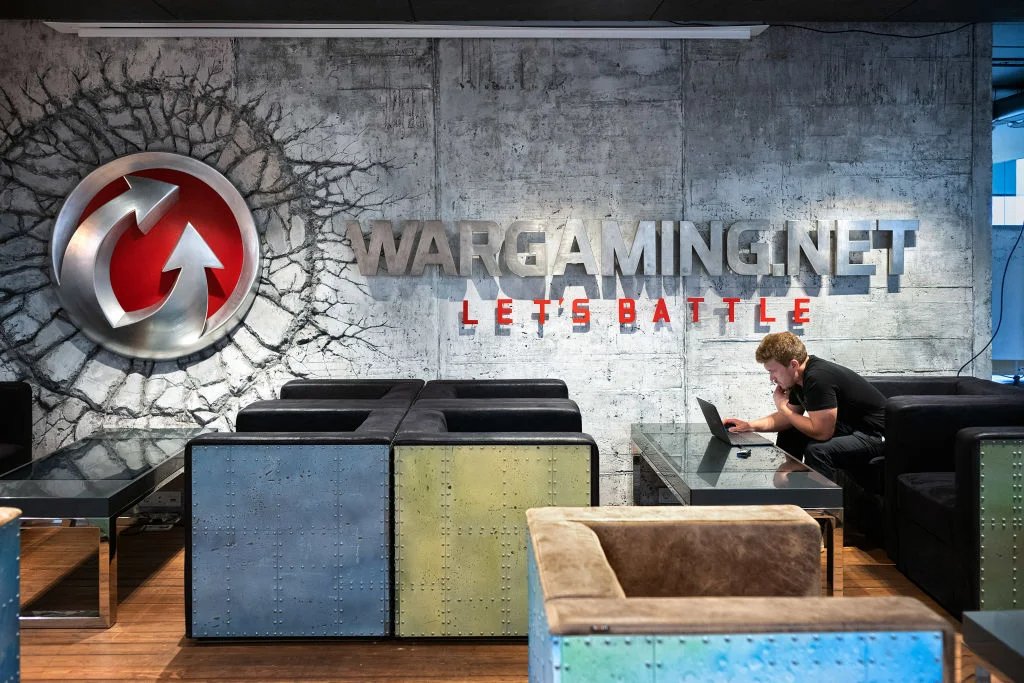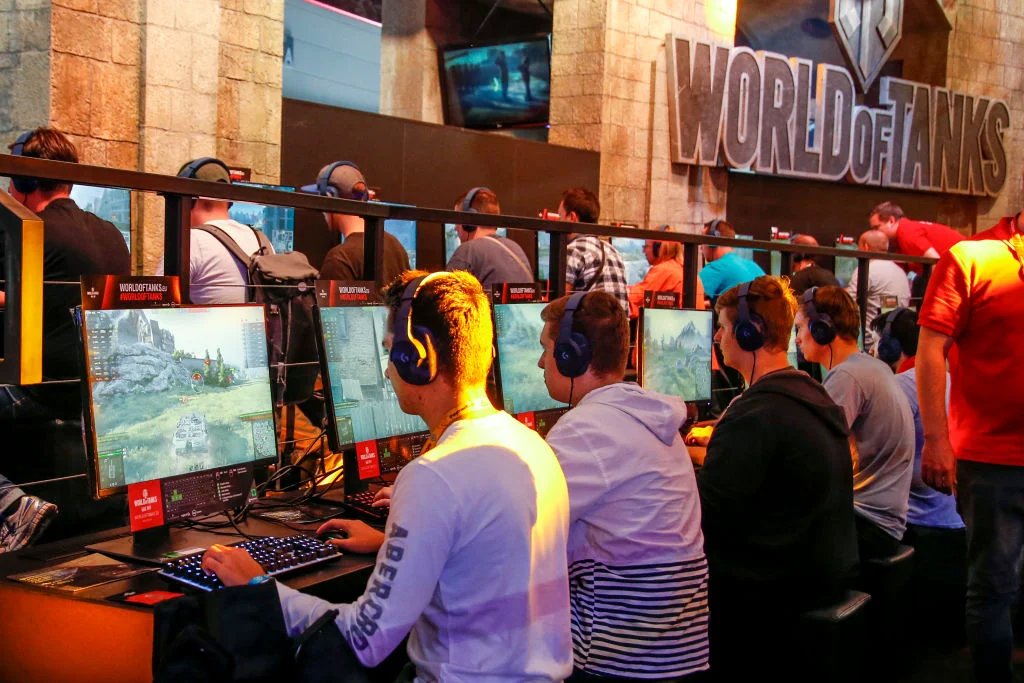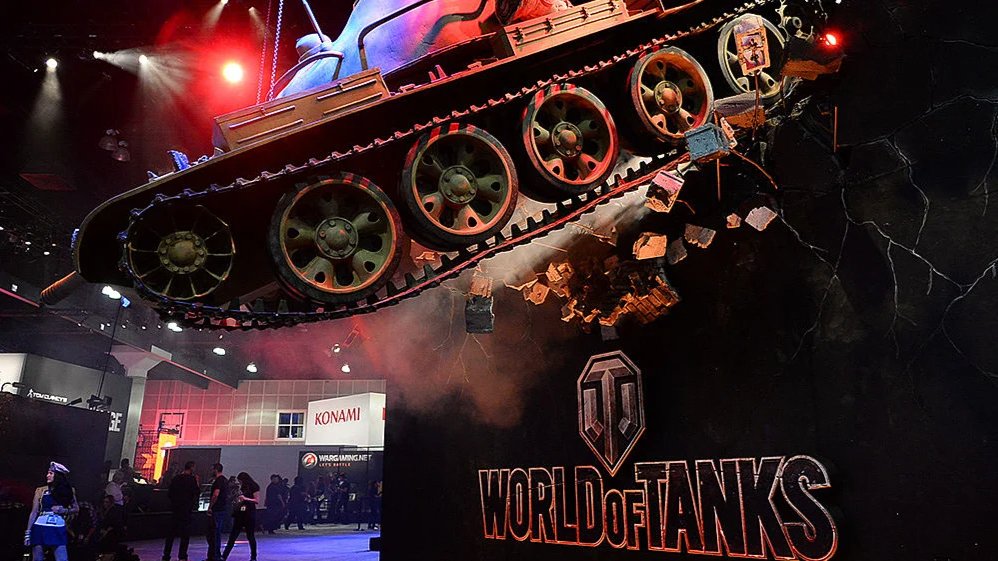“Here at Wargaming, we love war games, but we loathe real war. And this subject has been especially sensitive for us, as we have a whole studio back in Kyiv that works hard on World of Tanks and other products despite all the horrors their country is living through every day.”
Thus ran an official statement posted on the Wargaming website on 18 October. The company, a global video game developer based in Nicosia, Cyprus, launched a charity fundraiser to support Ukraine, using donations to fund mobile intensive care units for the country. The campaign involved six of its showcase products, including its top-of-the-line multiplayer online game World of Tanks (WoT).
The Russian authorities reacted by demanding the game be blocked in the country. Lesta Games, the company that now runs the game’s clone in Russia and Belarus, was quick to distance itself from the fundraiser. “Our projects are apolitical, and we have no connection with other similar games or projects,” the statement said.
Such a move may grab headlines, but barely impacts Wargaming, which sold its assets in Russia and Belarus soon after the war in Ukraine began. The company is now based in Lithuania, Ukraine, and Cyprus. Its flagship project, World of Tanks, has effectively split in two.
There is now a lookalike game for Russian players, and the original version for the rest of the world.
Going viral
World of Tanks celebrated its 13th anniversary in August. Even before its official release in 2010, the game had gone viral for its accurate models of World War II-era tanks clashing in historic locations, and for their realistic specifications.
Wargaming initially planned to create a massive multiplayer online game, in the vein of World of Warcraft, but decided on a military theme to avoid the stiff competition. The decision paid off, and within months the game had 700,000 players, quickly growing to over 1 million in 2011 after its release elsewhere in Europe.
The game was so popular in Russia that WoT tournaments were held in Moscow until 2013.
The game had 75 million registered accounts by December of that year, not far shy of the 100 million players boasted by World of Warcraft. With earnings of €375 million in 2014, the company was the third largest online business in the Post-Soviet Space.

The Wargaming office in Minsk, Belarus. Photo: Getty Images
The key to the game’s tremendous success was its free-to-play business model — players only pay for premium features and tanks — and its modest system requirements, meaning it worked on all computers.
The WWII subject matter the Russian authorities so actively promoted at the time also contributed to its success.
The game was supported by the Russian Military History Society, a body created by the Russian president aimed at promoting Russia’s war legacy, and was praised by the country’s Ministry of Defence.
The company first faced major problems in 2014 with the annexation of Crimea and the war in eastern Ukraine. Online gaming forums largely backed pro-Russian and pro-separatist bloggers, some of whom were even employed by Wargaming to advertise the game, creating a huge furore. There was further outrage when Warspot, a Wargaming website, ran stories by a volunteer fighter from the separatist “Donetsk People’s Republic”, created by Russian-backed paramilitaries in 2014.
Tactical retreat
Following Russia’s full-scale invasion of Ukraine last year, the company began to withdraw from Russia and Belarus, where it was headquartered. Two days after the invasion began, the company’s creative director Sergey Burkatovsky was fired for expressing his support to the Russian troops on Facebook. Wargaming distanced itself from his statements, coming out strongly in favour of Ukraine. Soon afterwards its Kyiv office announced it would donate $1 million to the Ukrainian Red Cross Society and launched the charity fundraiser.
Wargaming finally cut all ties with Belarus and Russia on 4 April 2022 following the Belarusian government’s decision to label the company “unfriendly” and imposed sanctions, but Wargaming managed to sell its assets in Russia and Belarus before they came into force. The assets were bought by Russian businessman Malik Khatazhaev and are now operated by Lesta Games, a St. Petersburg-based company that no longer has ties to Wargaming.
Andrew Tinney, Wargaming’s Chief Financial Officer, later said the company earned nothing from the deal, but suffered losses equivalent to €240 million after losing players from Russia and Belarus, cutting the company’s 2021 profits by a third. Some Belarusian employees moved to Lithuania where Wargaming has one of its five offices.
What was the Russian World of Tanks is now a new game, Mir Tankov, the Russian translation of the name, run by a separate team of developers. The clone has maintained the original engine and mechanics but has a new support team, a rare occurrence in the video game industry. Some players subscribe to a conspiracy theory that Wargaming remains in charge, however, explaining why Mir Tankov has released no global updates and has poor user support.
The game hasn’t fallen out of favour with the Russian Ministry of Defence, though. While a New York Times reporter was surprised to see Ukrainian servicemen playing World of Tanks during a lull in the fighting in August, Mir Tankov posts recruitment ads for the Russian military. Although Lesta Games denies having an official agreement with the Ministry of Defence to do so, a commander in Russia’s Northern Fleet recently expressed his admiration for such an “unexpected initiative” from the gaming world.

Photo: Isa Foltin / Getty Images for BIU
Join us in rebuilding Novaya Gazeta Europe
The Russian government has banned independent media. We were forced to leave our country in order to keep doing our job, telling our readers about what is going on Russia, Ukraine and Europe.
We will continue fighting against warfare and dictatorship. We believe that freedom of speech is the most efficient antidote against tyranny. Support us financially to help us fight for peace and freedom.
By clicking the Support button, you agree to the processing of your personal data.
To cancel a regular donation, please write to [email protected]

